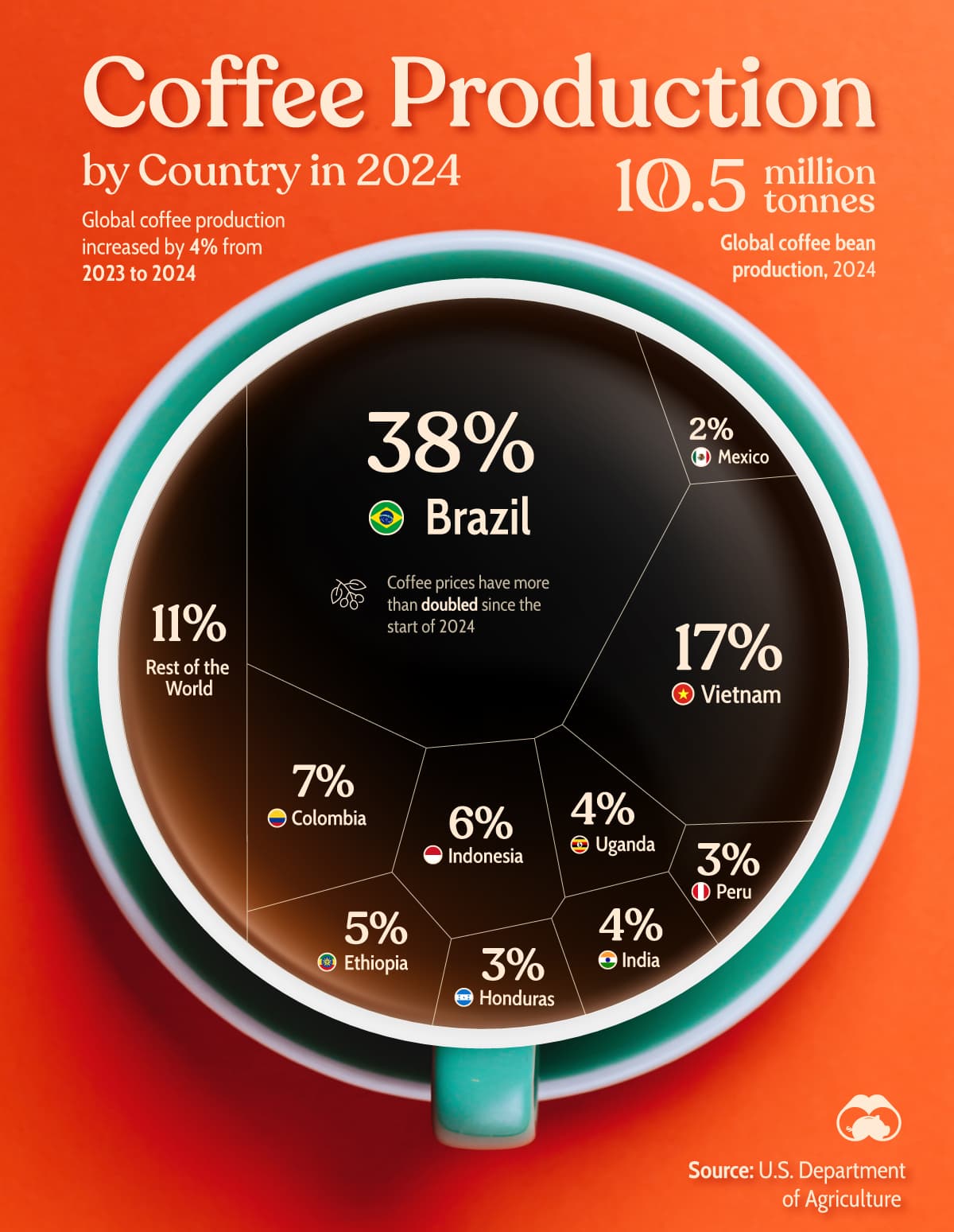Coffee remains one of the most consumed beverages worldwide, but its production is concentrated in a limited number of countries within the “coffee belt,” a geographic region along the equator. According to the latest data from the U.S. Department of Agriculture, just ten countries account for nearly 90% of the global coffee supply.
Top Coffee-Producing Countries in 2024
The global coffee market continues to rely on a few dominant producers. Below is a list of the largest coffee producers and their share of global production:
- Brazil: The world’s largest producer, with an output of 3,984,000 tonnes, making up 38% of total production.
- Vietnam: Second-largest producer, with 1,806,000 tonnes, representing 17% of global production.
- Colombia: Produces 774,000 tonnes, accounting for 7% of the total supply.
- Indonesia: Produces 654,000 tonnes, contributing 6% to the global market.
- Ethiopia: Africa’s leading coffee producer, with 501,600 tonnes, equivalent to 5% of global output.
- Uganda: Produces 384,000 tonnes, holding a 4% share of the market.
- India: Contributes 372,000 tonnes, accounting for 4% of global coffee production.
- Honduras: Produces 318,000 tonnes, making up 3% of global supply.
- Peru: Produces 261,000 tonnes, representing 2% of total coffee output.
- Mexico: Produces 232,200 tonnes, equivalent to 2% of global production.
- Rest of the world: A combined total of 1,204,500 tonnes, accounting for 11% of global production.
Brazil and Vietnam Dominate Global Supply
Brazil remains the world’s top coffee producer, providing 38% of global supply. Along with Vietnam, which focuses on robusta coffee production, these two nations produce more than half of the world’s coffee.
Colombia ranks third, known for its high-quality arabica beans. Ethiopia, the historical birthplace of coffee, continues to be Africa’s leading supplier, distinguished by its uniquely flavored beans.
Expected Coffee Price Increases in 2025
Consumers are likely to face higher coffee prices in 2025 due to supply chain disruptions and climate challenges. The El Niño phenomenon in 2024 caused severe droughts in Brazil, reducing yields and pushing arabica prices beyond $4 per pound—more than double their early 2024 levels.
Economic analysts predict that prices may stabilize gradually by 2025–2026 as production levels recover.

